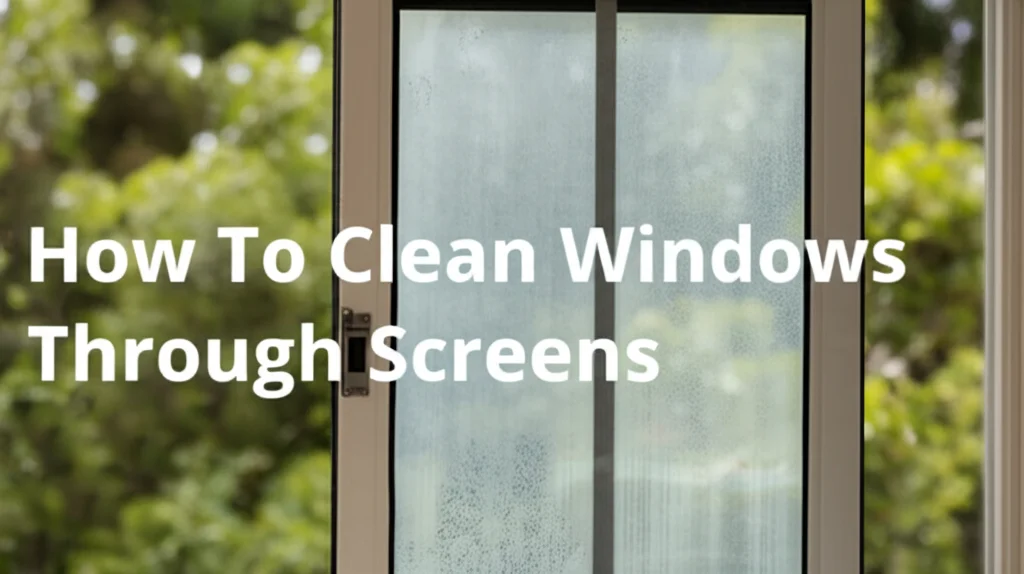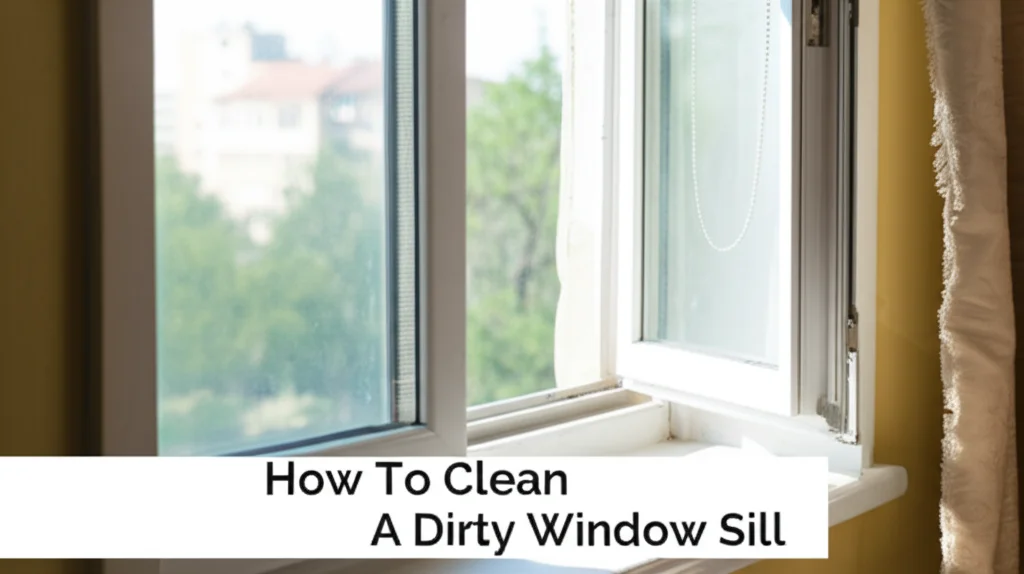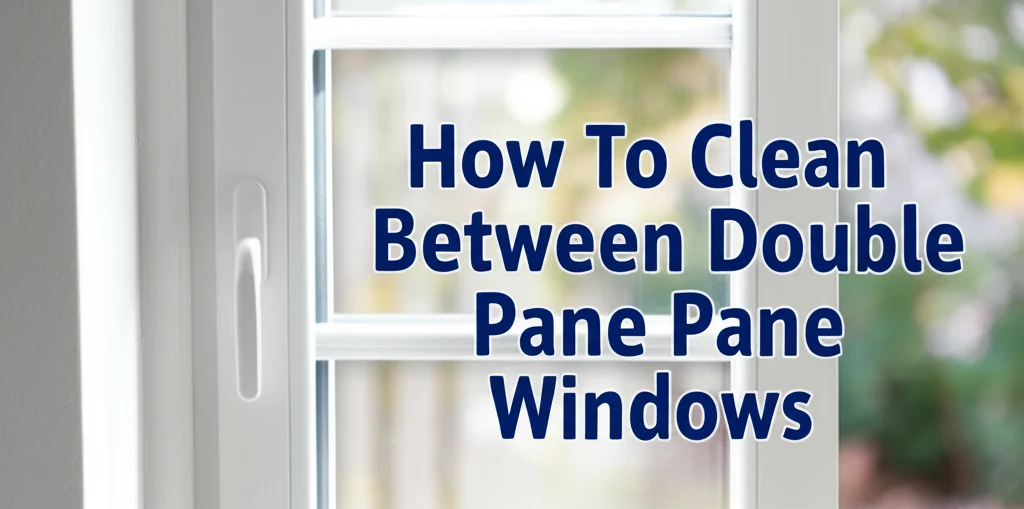· Home Cleaning · 6 min read
How To Clean Windows Through Screens

Sparkling Clean: How To Clean Windows Through Screens
Ever look out your window and see…dirt? It’s frustrating, isn’t it? You want to enjoy the view, but grime and dust obscure it. Cleaning windows can feel like a chore, especially when you have screens attached. But don’t worry, you don’t need to remove them! This article will show you how to clean windows through screens quickly and efficiently, leaving you with a clear, bright view. We’ll cover everything from the best cleaning solutions to the proper techniques for streak-free results. Let’s get started and make your windows shine!
Quick Answer: To clean windows through screens, use a microfiber cloth or sponge with a gentle cleaning solution (like dish soap and water). Spray the solution onto the cloth, not the window, and gently wipe the window in a circular motion. Rinse the cloth frequently and dry with a clean, dry microfiber cloth.
Takeaway:
- Use a microfiber cloth for best results.
- Spray cleaner on the cloth, not the window.
- Wipe in circular motions for even cleaning.
- Dry with a clean, dry cloth to prevent streaks.
Why Cleaning Windows Through Screens Matters
Keeping your windows clean isn’t just about aesthetics. Clean windows let in more natural light, which can boost your mood and even save on energy bills. Regularly cleaning your windows, even through the screens, prevents dirt buildup that can be harder to remove later. Plus, it’s a simple task that can make a big difference in the overall appearance of your home. It’s a small effort for a significant impact.
Choosing the Right Cleaning Solution for Window Screens
The right cleaning solution is key to getting your windows sparkling without damaging your screens. Harsh chemicals can degrade the screen material over time. Luckily, you likely already have what you need at home! A simple mixture of warm water and a few drops of dish soap is often the most effective and safest option.
Here are a few options:
- Dish Soap and Water: This is a gentle yet effective cleaner for most window screens and glass.
- Vinegar and Water: A 50/50 solution of white vinegar and water can cut through grime and leave a streak-free shine. However, avoid using vinegar on tinted windows.
- Commercial Window Cleaners: If you prefer a commercial product, choose one specifically designed for windows and screens. Always read the label and test in an inconspicuous area first.
- Avoid Ammonia: Ammonia can damage window screens and leave streaks.
Gathering Your Cleaning Supplies
Before you start, gather everything you’ll need to make the process smooth and efficient. Having everything within reach will save you time and frustration. Here’s a checklist:
- Microfiber Cloths: These are essential for streak-free cleaning. Have several on hand – one for washing, one for rinsing, and one for drying.
- Spray Bottle: For applying your cleaning solution.
- Bucket (Optional): If you prefer to use a bucket of cleaning solution instead of a spray bottle.
- Soft-Bristled Brush (Optional): For gently scrubbing stubborn dirt from screens. An old toothbrush works well for small areas.
- Sponge: A clean sponge can also be used for washing the windows.
- Ladder or Step Stool (If Needed): For reaching higher windows safely.
Step-by-Step Guide: Cleaning Windows Through Screens
Now for the main event! Here’s a detailed guide to cleaning your windows through the screens:
- Dust the Screens: Before you start washing, use a soft brush or a dry microfiber cloth to remove loose dust and debris from the screens. This prevents the dirt from turning into mud when you add water.
- Prepare Your Cleaning Solution: Mix your chosen cleaning solution in a spray bottle or bucket.
- Spray the Cloth, Not the Window: This is crucial! Spraying the window directly can lead to streaks and oversaturation. Lightly dampen a microfiber cloth with the cleaning solution.
- Wipe the Window: Gently wipe the window in a circular motion, overlapping each pass. Apply light pressure to avoid damaging the screens.
- Rinse the Cloth Frequently: As the cloth gets dirty, rinse it thoroughly in clean water and wring it out. A clean cloth ensures you’re not just spreading dirt around.
- Dry the Window: Use a clean, dry microfiber cloth to dry the window immediately after washing. This prevents water spots and streaks.
- Repeat as Needed: For particularly dirty windows, you may need to repeat the process.
Dealing with Stubborn Dirt and Grime
Sometimes, despite your best efforts, stubborn dirt and grime remain. Don’t despair! Here are a few tips for tackling those tough spots:
- Soak Stubborn Areas: For particularly dirty areas, let the cleaning solution sit for a few minutes to loosen the grime before wiping.
- Gentle Scrubbing: Use a soft-bristled brush to gently scrub away stubborn dirt. Be careful not to apply too much pressure, as this could damage the screens.
- Magic Eraser (Use with Caution): A Magic Eraser can be effective on glass, but test it in an inconspicuous area first, as it can be abrasive. Avoid using it directly on the screens.
- Repeat the Process: Sometimes, multiple applications of the cleaning solution and gentle scrubbing are needed to remove stubborn dirt.
Maintaining Clean Windows: Preventative Measures
Once you’ve cleaned your windows, you’ll want to keep them that way! Here are a few preventative measures you can take:
- Regular Dusting: Dust your window screens regularly to prevent dirt buildup.
- Trim Nearby Vegetation: Overhanging branches and bushes can contribute to dirt and debris on your windows.
- Consider Window Screen Protection: Some companies offer protective coatings for window screens that repel dirt and make cleaning easier.
- Wash Windows During Cloudy Days: Direct sunlight can cause the cleaning solution to dry too quickly, leaving streaks.
FAQ: Your Window Cleaning Questions Answered
Q: Can I use Windex to clean my windows through the screens?
A: While Windex can be used, it’s best to dilute it with water and test it in an inconspicuous area first. Some Windex formulas can be harsh on screens and leave streaks. A dish soap and water solution is generally safer.
Q: How often should I clean my windows?
A: Ideally, you should clean your windows at least twice a year – once in the spring and once in the fall. However, if you live in a dusty or polluted area, you may need to clean them more frequently.
Q: What’s the best way to clean insect debris off my screens?
A: A soft-bristled brush or a vacuum cleaner with a brush attachment can effectively remove insect debris from screens. Gently brush or vacuum the screens to avoid damaging them.
Q: Will vinegar damage my window tint?
A: Yes, vinegar can damage window tint. Avoid using vinegar-based cleaning solutions on tinted windows. Stick to mild dish soap and water.
Conclusion: Enjoying a Clear View
Cleaning windows through screens doesn’t have to be a daunting task. With the right tools, a gentle cleaning solution, and a little elbow grease, you can achieve sparkling clean windows and enjoy a brighter, clearer view. Remember to spray the cloth, not the window, and dry thoroughly to prevent streaks. By following these simple steps and incorporating preventative measures, you can keep your windows looking their best for years to come. So, go ahead, give your windows a little love – you’ll be amazed at the difference it makes!




